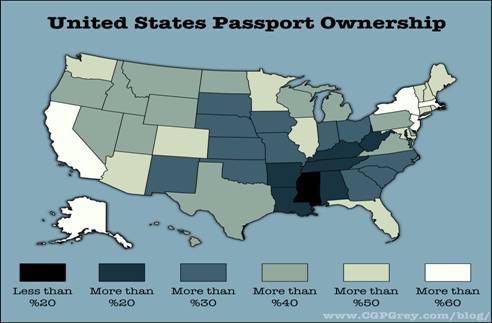Why is our government deadlocked on just about everything; unable to make decisions on financial regulations, the budget deficit and the role of government in general? Because we are locked in a battle of the centuries. Yes, we are talking about centuries of U.S. history that are seen differently by Democrats and Republicans, the young and old, and even coastal vs. Midwest and southern states.
It is a struggle between those who have already entered the 21st century and those who are holding back because they are fearful of its faster pace, or have a great nostalgia for a much simpler, older America.
The problem is that America has become an empire and the world's leading super power, which costs money, to put it bluntly. And just as happened to empires of the past (British and Roman Empires come to mind), we have run up insurmountable debts that require us to relinquish some of that power to younger countries, such as India, China, and Brazil. We can no longer justify appropriating currently 25 percent of the world's resources with just 5 percent of its population. The younger countries want what we have, in other words.
And so true conservatives of all stripes are being true to their credo -- prevent change; whether it is bigger government, universal health care, or climate change. While liberals in general want government to step in where private enterprise can't or won't -- with a better social safety net, environmental protection, and above all greater income equality that has declined to pre-Great Depression levels.
We actually know which states have entered the 21st century, and which haven't. A very interesting study came out recently which analyzed the per capita ratio of passport holders in each state (via Grey's Blog). It revealed that the states with the highest ratio of passport holders were also the states most connected with the rest of the world--whether with psychological traits such as an openness to change, higher incomes, or a higher level of education.
And conversely, those states with the lowest ratio of passport holders were more isolationist, less educated, and less open to change. Which are the states with the highest ratio of passport holders?
•NEW JERSEY 68.36%
•ALASKA 65.01%
•MASSACHUSETTS63.42%
•NEW YORK62.47%
•CALIFORNIA 60.19%
•NEW HAMPSHIRE59.39%
•CONNECTICUT 58.50%
•WASHINGTON 57.28%
•VERMONT 56.32%
•MARYLAND56.21%
The result is similar when comparing incomes. Maryland leads in
median per capita income, followed by New Jersey, Connecticut, Delaware, Alaska, and Massachusetts. New York, California, and New Hampshire aren't far behind. Conversely, Mississippi, West Virginia, Alabama, and Arkansas are at the bottom of the wealth ladder.
Those states also have the highest and lowest educated workforces, respectively. Even more importantly, the most educated states have the most innovative workforce. There is a reason for it. The higher ratio passport-holding citizens have more open personality traits, such as Openness to Experience, according to studies done by Cambridge University Psychologist Jason Rentfrow and his colleagues.
There are other measures of who has entered the 21st century, of course. One can say with the election of Barack Hussein Obama, African Americans have now entered the 21st century political mainstream. But until we have a female President, the feminine gender remains to some extent in the 20th century. Both African Americans and women didn't have the right to vote until the early 20th century, after all.
But there is another more fundamental change--and it is financial--that is already happening and will bring most of 'U.S.' into the 21st century. It is the development of a greater economic safety net, if you will, that makes it easier to judge and hedge against everyday risks; whether succeeding in a profession, or insuring the value of a home.
Yale economist Robert Shiller details what to expect in a recent book, The New Financial Order, Risk in the 21st Century (Princeton U. Press, Princeton, NJ, 2003). He and Karl Case via their Macro Markets LLC are already responsible for setting up financial indexes, such as the S&P Case-Shiller Home Price Index that allows futures' traders to index home price fluctuations and thus hedge against the future volatility of home prices.
Right now we are witnessing an explosion of new information systems,
payments' systems, electronic markets, online personal financial planners," says Dr. Shiller, "and other technologically induced economic innovations, and consequently much in our economy will be changed within just a few years. Almost all of our economy will be transformed within just a few decades."
Dr. Shiller maintains that such innovations will bring greater transparency to financial and other markets, as well as level the income and wealth playing field for average Americans who before now had little access to the new technologies that have created so much wealth.
So we are joined in the eternal struggle between young and old, the present and past. Those who wish to live in this, the 21st century, will want to level the playing field of opportunity for all of 'U.S.', whatever our gender or ethnic origin; whether black, white, Hispanic, or Asian.

